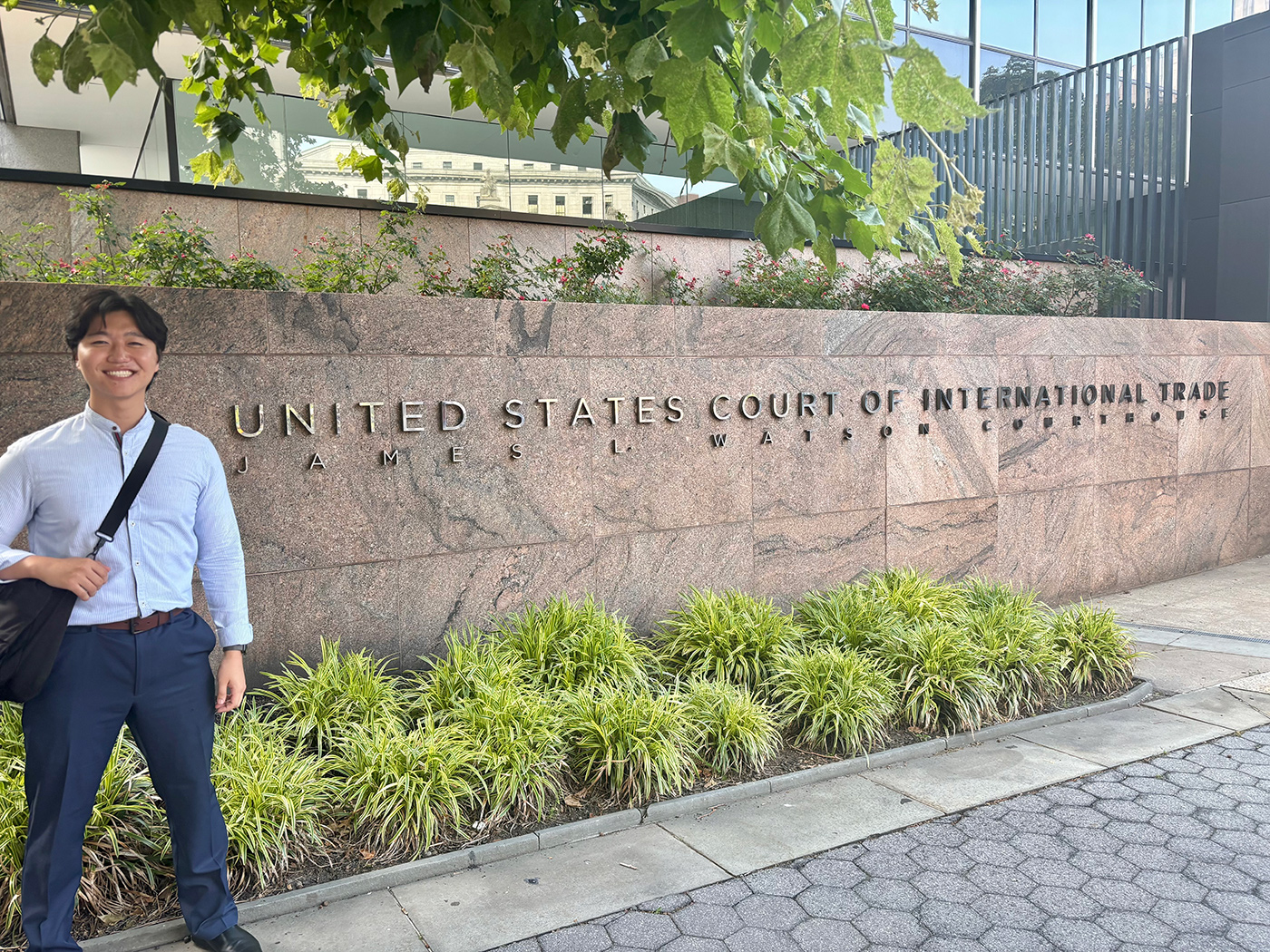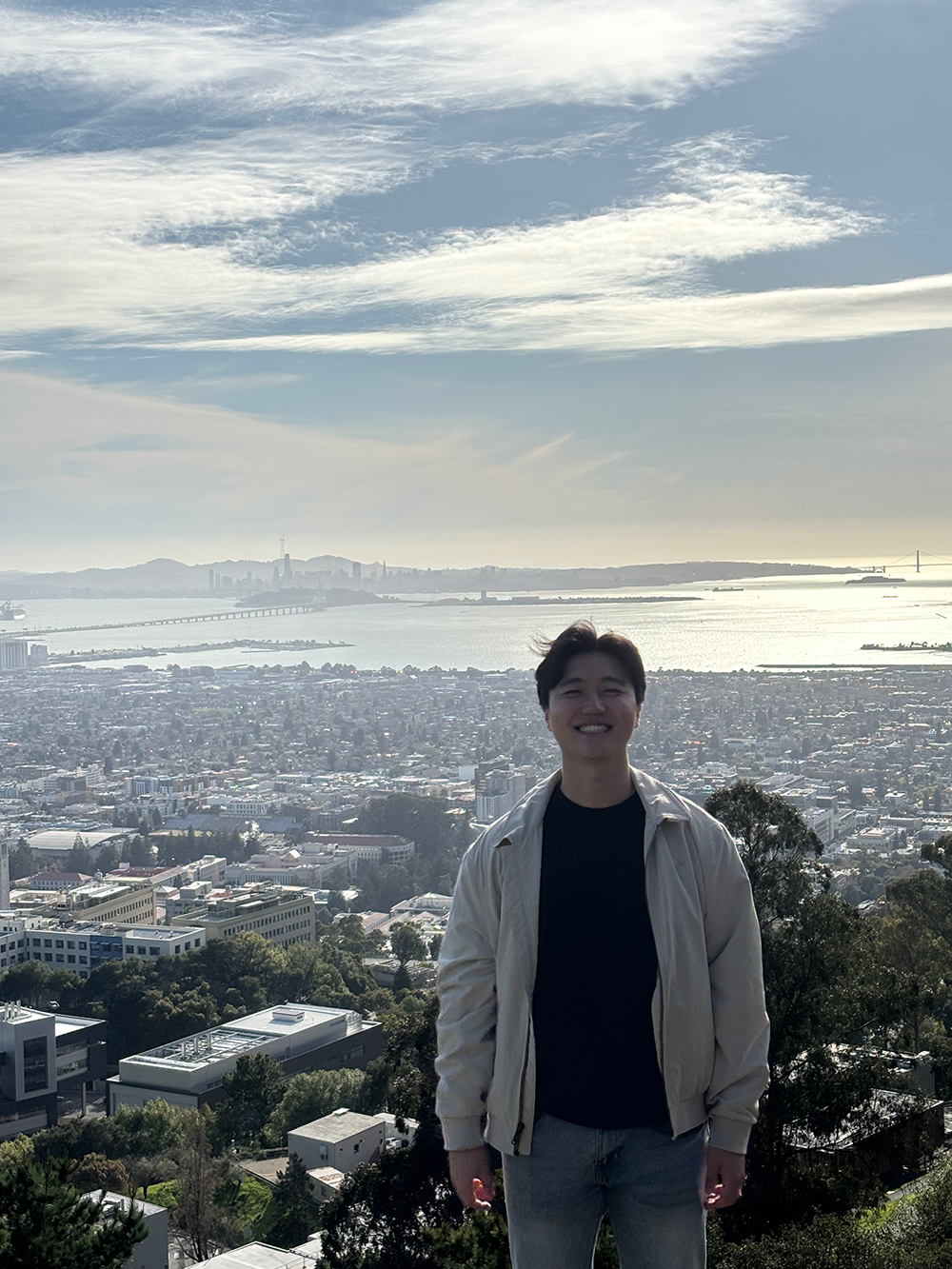
In our annual Summer Work Series, UC Berkeley Law students share reflections about their on-the-job experiences. These first-person accounts describe various career-advancing work and skill building in different areas of law, through opportunities often obtained in partnership with the school’s Career Development Office.
Alex Kang ’27 uses a global lens when viewing the law. While earning a master’s degree at Tufts University’s Fletcher School of Law and Diplomacy, he served as a presiding judge for the Model International Criminal Court, an executive officer for the Korea Working Group, and briefed a United Nations office about the impact of statelessness on children in Northwest Syria. He received the university’s Chinese Prize for excellence in the study of Chinese language, literature, and culture, and also won the Fletcher School’s Leo Gross Law Prize for excelling in law-related studies.
Below, Kang discusses his gratifying summer work as a judicial extern to Judge Lisa W. Wang at the United States Court of International Trade in New York City.
The U.S. Court of International Trade is a uniquely situated Article III court with nationwide jurisdiction over actions arising from the international trade laws of the United States. It regularly reviews decisions by executive agencies that oversee trade, so its rulings carry special precedential value. Accordingly, it plays a critical role in shaping how these agencies implement trade policy, kind of like a special appellate court for the executive branch.
This externship is a remarkable opportunity not just because I’m learning how the federal judiciary works from the inside out, but also because these are uniquely dynamic times at the court. Many of the legal questions we discuss in chambers feel like they’re coming straight from the headlines, tracking closely with some of the most fascinating developments in U.S. trade and international affairs today.

My path to the CIT began long before law school. As an undergraduate, I studied international relations and Chinese studies. I then pursued graduate studies in international law and diplomacy, where I came to appreciate both the significance and the limitations of international legal frameworks.
I found myself increasingly drawn to the challenge of translating abstract principles like the rule of law into workable tools for navigating real-world, cross-border issues. Working at the junction of international facts and the law struck me as one of the most meaningful ways to engage international affairs with clarity and accountability.
At UC Berkeley Law, I’ve been fortunate to find professors and programs that helped shape this focus. I took Foreign Relations Law with Professor Elena Chachko this past spring, which showed me how the U.S. legal system and political institutions interface with the international system.
I also serve as managing editor of the Berkeley Journal of International Law and contributed to a Universal Periodic Review submission on artistic freedom through Arts and Innovation Representation, one of the law school’s Student-Initiated Legal Services Projects. This fall, I’ll be joining the Global Rights Innovation Lab Clinic, led by Professor Laurel Fletcher and Clinical Supervisor Valentina Rozo Angel.
Just a week into my internship, I was already immersed in a tariff classification case and will be assisting in drafting a judicial opinion. I’m seeing firsthand how trade laws operate on the ground, as well as how private parties and the federal government litigate complex, highly technical disputes.
Of course, the legal issues are intellectually demanding. But they’re also fun, and I get to learn all the fascinating details about goods that come into the country.
I’m also grateful to have the best bosses ever. Judge Wang and the clerks are incredibly cool, inspirational, and relatable, casually hanging out in chambers while offering invaluable guidance.
At the same time, the level of rigor and care they bring to their work is nothing short of inspiring. Our team is building a rapport I’m genuinely thankful for, and I already know I’ll look back on this summer in chambers with deep fondness.
After graduation, I hope to continue working at the intersection of international facts and the law, particularly in areas like trade and national security. Next summer, I’ll be in Washington, D.C., at Arnold & Porter, where I hope to keep building on what I’ve learned here about the law, and the kind of lawyer I want to become.